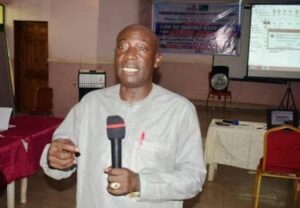

By Dawud Ahmed in Lokoja.

Idris Miliki Abdul, the Executive Director,Conscience for Human Rights and Conflict Resolution (CHRCR),has called for the State of Emergency on water and sanitation in Kogi State, without further delay.
He advocated the review of the Kogi State Sanitation Policy as the new leadership of Alhaji Ahmed Usman Ododo settles down for governance.
Miliki made the call in a statement he signed and made available to The Reporters on Saturday in Lokoja.
He argued that the need for the review the sanitation policy in the state became obvious to reflect the current challenges bordering on sanitation of environment in the state.
According to him, the state witnesses not less than 10,000 vehicles crossing its territorial jurisdiction on a daily basis,a development he observed, posed environmental challenges because of human attitude towards basic hygiene.
Miliki, who added that Lokoja,the state capital hosts various market and motor parks, however,expressed worry that the environment in those places remained unkept.
“We are also worried, it seems there is no demarcation between the Sanitation Board and the company expected to clean Lokoja Town.
“Worst of it all, is the unavailability of potable water in Kogi State, particularly in Lokoja that hosts both river Niger and Benue.
” Open defecation has become alarming in Lokoja town and across the state.
“Refuse are scattered across the town, without the evacuation, as at when due, worst of all is that refuse dump sites have remained unkept without proper management,”according to him.
The conflict resolution expert also recommended specific date for cleaning specific market and all markets.
“This will not cost government beyond supervision, as all markets and motor parks should have a specific days and time for cleaning that will improve sanitation in those places.
“We call for stakeholders conference on environment sanitation in Kogi state that will generate ideals on how to move this all important sector forward, that will include genuine professionals and relevant stakeholders,” he added.


